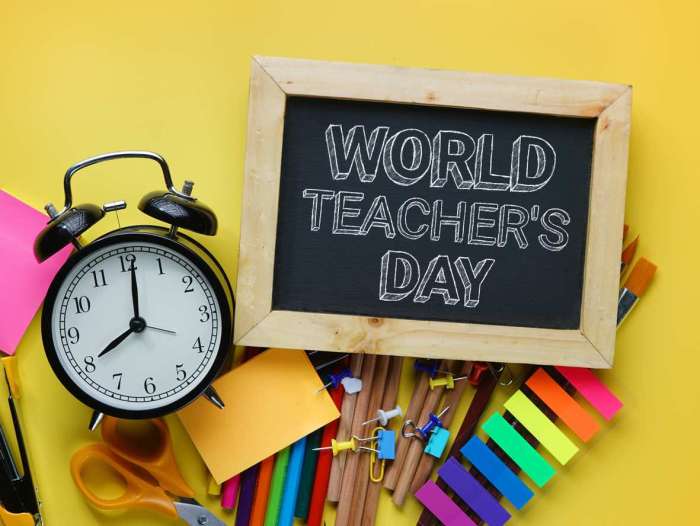How the Pandemic Has Affected Teachers
Teachers and the education community have been under a microscope for the last few years due to the COVID-19 pandemic. Ask almost any teacher you meet at any grade level, and they will tell you the stress they’ve faced in their profession of late has been at unheard-of levels.
Medical professionals are one of the other few professions that have been under as much fire as teachers lately. Both fields are overworked, underpaid, and often lack the necessary supplies to perform their jobs to the best extent.
Grueling schedules, lack of administration support, and criticism from parents and the community have led to teachers quitting all levels. For example, I was a preschool teacher for fourteen years and left teaching in March 2020 to care for my kids when their school shut down. Since May 2020, I have devoted myself to freelance writing and never looked back. Therefore, I know what it is like on both sides of the spectrum as a parent and teacher.
A positive thing that has come out of the teacher shortage and struggle for parents to find care for their children during the pandemic is the realization of how essential early childhood educators are to our daily life.
Quality, reliable care at an affordable price has long been a problem in the U.S. But the COVID-19 pandemic highlighted how important the profession is and the essential need for all parents to have access to quality child care. The lack of quality care for our youngest citizens has made many communities reframe how they view early childhood educators - and honestly, it’s about time.
For too long, early childhood educators have been seen as background employees and often taken for granted by parents and community members who don’t realize the challenges these teachers face daily.
The 25 Best Educational YouTube Channels for Kids
Between years of pandemic disruptions and modern elementary education’s increased dependence on screen time, online learning videos are more popular than ever. Family Education took a closer look, searching for kid-friendly YouTube channels that offered engaging educational content for kids ranging from kindergarten to junior high. Read More
Early childhood teachers are the lowest paid of any full-time teaching position. The average ECE (early childhood educator) makes $15.38/hour, an annual salary of just under $32K. In addition, they are often required to purchase additional supplies to supplement their rooms and often work odd and long hours to cover when parents are at work.
What is an Early Childhood Teacher?

Like most professions, the role of childcare and early childhood education has evolved. And the last one hundred years have been especially crucial to education as we continually grow in our understanding of how the young brain learns and develops.
Individuals like Maria Montessori, Jean Piaget, Harry Wachs, and Lev Vygotsky have shaped how we view young learners, especially those under five. For example, we know now that 80% of the brain’s development occurs by the time an individual turns three years old, with an additional 10% happening by age five.
We also know that children (of all ages) learn best through play and hands-on experiences. Many developmental child psychologists have emphasized the importance of play, but the beloved Mr. Rogers said it best when he said:
Play is often talked about as if it were a relief from serious learning. But for children, play is serious learning. Play is really the work of childhood. ~ Fred Rogers
Therefore an early childhood educator’s job is to shape and guide play into meaningful learning experiences. Every time a child plays, they learn something.
Picture the following scenario:
A toddler stacks a block and then watches it wobble and fall, so they try again. They repeat the action but place the block in a different spot or facing a different direction. This time it doesn't fall down, and viola, they’ve learned how to stack two blocks without them falling!
A trained early childhood teacher would know that most children develop the skill to stack blocks between 16-18 months old. In addition, they would know what types of blocks to provide and use them to introduce colors, numbers, patterns, spatial awareness, and develop language and social skills.
Child: Picks up a block
Teacher: “You picked up a blue one! Blue is my favorite color.”
Child: Points to another blue block. “Blue!”
Teacher: “Yes, that one is blue too! Do you see anything else that is blue?”
Child: Points to a green block. “That is another block; that one is green!”
Teacher: “So now we have two blue ones and one green one. So let’s count, 1, 2, 3!”
In that simple exchange, the teacher introduced colors and counting and demonstrated the ebb and flow of a conversation.
An untrained eye may watch this encounter and see “just playing,” and that is one of the biggest pet peeves of many early childhood teachers. Comments like, “Oh, I wish I had your job so I could play all day” are often considered harmless but are demeaning to the profession.
To quote Liam Neeson, an early childhood teacher has a “particular set of skills” specific to the age group they teach.
A high school teacher or college professor may sound like they partake in more advanced teaching. But I can tell you firsthand - the middle school and high school teachers I know have admitted that they wouldn’t know the first thing about teaching a classroom of three-year-olds because their training hasn’t developed that skill set. (Nor would I want to be in a room of 7th and 8th graders - yikes!).
Skills of an Early Childhood Educator

- Understands brain development between birth to five years of age
- Possess techniques to guide a child at each stage of their development
- Understands that the developmental differences between a one-year-old, three-year-old, and four-year-old are unique
- Possess knowledge of how to foster healthy social-emotional growth
- Can teach skills like conflict resolution, empathy, resilience, and helpfulness at an age-appropriate level
- Know how to design a classroom and set up materials appropriate for young learners
- Often know sign language / how to communicate without talking
- Have the ability to communicate with parents about their child’s development effectively
- Know how to observe, assess, and document developmental growth in a child
- Understand the signs of behavioral, neurological, emotional, and developmental issues or delays
- Have the ability to create detailed, meaningful lesson plans
- Possess strong organizational and multitasking skills
- Have an ability to care for a child’s physical well-being and teach health and safety to children
- Have First/Aid and CPR training
- Recognize the signs of illness and injury
The Barriers to Partnership Working
The parents of a former student made a comment to me that I will never forget. I even remember exactly where we were standing in the classroom. Their son was struggling with some behavioral issues—nothing out of the norm for an almost three-year-old, but it was something that needed to be addressed.
I presented the concerns to the parents, backed them up with documentation, and provided a few suggestions on what they could do at home. Then, a few days later, when we touched base, they said, “We talked to our next-door neighbor, she’s a 5th-grade teacher, and she said to try ‘XYZ,’ so we’re going to do that instead.”
I stood there and couldn’t believe what I had heard. Instead of trusting and taking the advice of their son’s teacher, someone who spends 8-9 hours a day with him, who possesses a master’s degree in early childhood education, and has been teaching for a decade, they decided to take the advice of a neighbor who teaches an entirely different grade.
Maybe their neighbor had some background in ECE; I’ll never know. But when I heard their comment, they might as well have been saying, “I know that you’re a podiatrist and my foot is bothering me, but my friend is a cardiologist, so I’m going to follow their advice.”
There is nothing wrong with being either a cardiologist or a podiatrist, but they each possess specific knowledge of a specific body part. You wouldn’t go to a sushi chef to have your wedding cake baked or an IT pro to get your car fixed.
So, Why Isn't Working in Early Childhood a Respected Career?

I think the answer to my question above has a few answers.
- It used to be the case that early childhood caregivers weren’t individuals with specialized training or education. Instead, it was a mother, grandmother, the local church nursery, or your neighbor down the street who took care of young children. People who undoubtedly had experience with children loved and nurtured them but weren’t professionals as we viewed it.
- Second, caring for children has long been seen as “women’s work.” It’s natural for women to do it; therefore, they must come hardwired with the skills, so there is nothing for them to learn. This outdated way of thinking can be very damaging. Having watched my sister around countless babies, I can tell you that child care does not come naturally to all women!
- We’ve been caring for babies and kids as a society for tens of thousands of years, so why does it require any special training?
In the 70s and 80s, the need for quality childcare increased when more women sought employment outside the home. With that need came more research, training, and understanding that caring for babies and young children and helping them fully develop requires specific training.
Believe it or not, it used to be that being a doctor, a profession now revered, was thought of as a ‘crack-pot’ profession. As late as the 18th and 19th centuries, people considered medicine an ‘OK’ profession - it was looked down upon by those of the upper crust.
In fact, it wasn’t until 1930 that a college degree was even required to become a doctor. Then, however, with scientific and medical advances and the need for years of studying and training, society recognized doctors as a noble profession.
Finally, in the 80s and 90s, early childhood researchers like Montessori and Vygotsky were getting more attention as educated professionals wanted to ensure their children were off to a good start while they went to work.
Therefore, it is somewhat ironic that nearly forty years later, it is still not understood that quality childcare and preschools require teachers with specialized training and, in many cases, a college degree or even a master's degree.
Early Childhood Credentials in the U.S.

Early childhood is defined as birth through to age eight, so most early childhood education programs in the US qualify individuals to teach up to second or third grade.
The qualifications required will vary based on the state you want to teach in, the type of school (public, private, child care center, etc.), and what level of position you’re seeking.
To teach preschool in a public or private school in most states, you will need at least a bachelor’s degree in early childhood education. You may also need a teaching license and student teaching experience, and you will be required to take continuous education courses to maintain your license.
To teach at a childcare center and hold a Lead Teacher position, in most states, you will need a minimum of an associate's degree in early childhood, a CDA (Child Development Associate Certification), or other certifications based on your state. For example, in Maryland, where I live, a 90-Preschool training certification or 45-hour Infant/Toddler certification is required by the Maryland State Department of Education.
Most early childhood teachers working in child care centers, mainly those accredited, must take ten or more hours of continuing education credits each year.
How to Support the ECE You Know
Change doesn’t happen overnight, and ECE professionals have been fighting for recognition for decades. Still, there are ways you can foster the relationship between yourself and your child’s caregiver or support those working in the field:
- Ask if any classroom supplies are needed and donate them
- Donate gently used toys, books, and clothing (kids are messy and often need extras)
- Ask your child’s teacher how their day was or send in a short note of thanks and support
- Attend parent-teacher conferences or meetings with an open mind, and remember your child’s teacher is there to help
- Ask questions about your child’s development and what you can be doing at home
- Communicate concerns, schedule changes, routine changes, or anything that might affect your child’s day.
Changes in routine affect kids big time, so parents should communicate even simple changes that are going on at home with the teacher. For example, telling the teacher that your child isn’t sleeping well or that they’ve moved into a different bedroom means that they will be able to better understand how your child’s needs might differ during the day.
I’ll leave you with the following pieces of advice that could go a long way…
- A Target, Starbucks, or Amazon gift card is a great way to say “Thank You” during the holidays or on World Teachers’ Day.
- Volunteer to help out, come in and read, or go on field trips
- Remember your child’s teacher has a life and responsibilities outside the classroom (they may be a parent too!)
- Talk to others about the importance of quality, affordable early childhood programs.
- Demonstrate respect for the profession when speaking to co-workers and friends
- Be Kind. Preschool teachers are people too.



